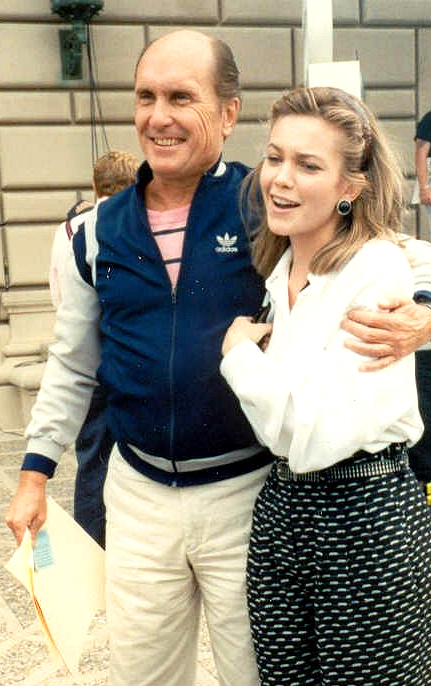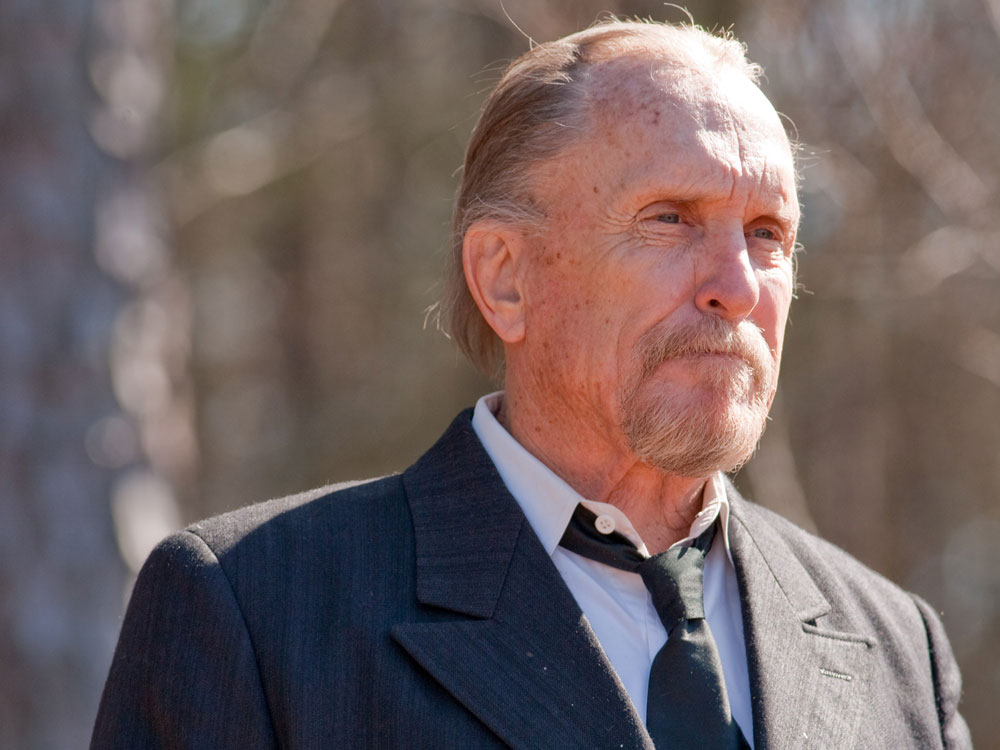Robert Duvall
Robert Duvall

Robert Selden Duvall, born on January 5, 1931, is an esteemed American actor whose illustrious career spans seven decades, marked by a plethora of prestigious awards including an Academy Award, four Golden Globe Awards, a BAFTA Award, two Primetime Emmy Awards, and a Screen Actors Guild Award.
Duvall's journey in the entertainment industry commenced with minor roles on television in 1960, appearing in shows like Playhouse 90 and the Armstrong Circle Theatre TV series. He later transitioned to Broadway and film, making his Broadway debut in 1966 with the play "Wait Until Dark." Duvall further solidified his stage presence with his performance in David Mamet's "American Buffalo" in 1977, earning a nomination for the Drama Desk Award for Outstanding Actor in a Play.
His debut in feature films was notable, portraying Boo Radley in the classic "To Kill a Mockingbird" (1962). Duvall's early filmography includes roles in acclaimed movies like "Captain Newman, M.D." (1963), "Bullitt" (1968), "True Grit" (1969), and "MAS*H" (1970). His personal favorite among his early works is "Tomorrow" (1972), which was developed at the Actors Studio.
Duvall's career reached new heights when he won the Academy Award for Best Actor for his role in "Tender Mercies" (1983). He received multiple Oscar nominations throughout his career, including memorable performances in "The Godfather" (1972), "Apocalypse Now" (1979), "The Great Santini" (1979), and "The Apostle" (1997).
In addition to his film accomplishments, Duvall has made significant contributions to television, earning accolades such as the Primetime Emmy Award for Outstanding Limited Series and Outstanding Lead Actor in a Limited Series for his work in the AMC limited series "Broken Trail" (2007). He received Emmy nominations for his roles in the CBS miniseries "Lonesome Dove" (1989), the HBO film "Stalin" (1992), and the TNT film "The Man Who Captured Eichmann" (1996).
Throughout his remarkable career, Duvall has left an indelible mark on both the big and small screens, captivating audiences with his unparalleled talent and versatility.
Robert Selden Duvall was born on January 5, 1931, in San Diego, California, to Mildred Virginia Duvall (née Hart) and Admiral William Howard Duvall, a United States Navy rear admiral. He was the second of three sons, with an elder brother named William Jr. and a younger brother named John. His mother, an amateur actress, was a relative of American Civil War General Robert E. Lee, while his father was a descendant of settler Mareen Duvall. Duvall was raised in the Christian Science religion but does not attend church regularly.
Growing up primarily in Annapolis, Maryland, where his father was stationed at the United States Naval Academy, Duvall attended Severn School and later The Principia in St. Louis, Missouri. He graduated with a Bachelor of Arts degree in drama from Principia College in Elsah, Illinois, in 1953.
Despite his father's expectations for him to attend the Naval Academy, Duvall pursued his passion for acting. After serving in the United States Army during the Korean War, he attended the Neighborhood Playhouse School of the Theatre in New York City on the G.I. Bill, studying under Sanford Meisner. During his time there, he formed friendships with fellow actors Dustin Hoffman, Gene Hackman, and James Caan. Duvall worked various odd jobs to support himself, including clerking at Macy's, sorting mail at the post office, and driving a truck.
Duvall's journey into acting was marked by determination and perseverance, as he honed his craft while navigating the challenges of starting a career in the competitive world of entertainment.
Robert Selden Duvall began his professional acting career at the Gateway Playhouse, an Equity summer theater in Bellport, Long Island, New York. He debuted with the theater in its 1952 season, playing the Pilot in "Laughter In The Stars," an adaptation of "The Little Prince." Duvall returned to the Gateway Playhouse in 1955 after his service in the U.S. Army, appearing in various productions such as "Time Out For Ginger," "Picnic," "The Cat And The Canary," "The Crucible," and "Dark of the Moon."
Over the following years, Duvall continued to showcase his talent on stage at various theaters, including the Augusta Civic Theatre, the McLean Theatre in Virginia, and the Arena Stage in Washington, DC. He received acclaim for his role as Eddie Carbone in Arthur Miller's "A View from the Bridge" at the Gateway Theatre, which Miller himself attended. This performance proved pivotal for Duvall's career, leading to significant opportunities in television.
In addition to his stage work, Duvall made his off-Broadway debut at the Gate Theater in 1958 and later appeared in productions such as "Call Me By My Rightful Name" and "The Days and Nights of BeeBee Fenstermaker." He won an Obie Award for his performance as Eddie Carbone in "A View From the Bridge" at the Sheridan Square Playhouse.
Duvall's Broadway debut came in 1966 with Frederick Knott's "Wait Until Dark," followed by his performance as Walter Cole in David Mamet's "American Buffalo" in 1977.
Throughout his stage career, Duvall demonstrated versatility and skill, earning recognition for his compelling performances across a range of roles and productions.
In the 1970s, Robert Duvall emerged as a significant figure in American cinema, drawing considerable attention for his roles in several notable films:
- MASH (1970): Duvall portrayed Major Frank Burns, a malevolent character, in this black comedy directed by Robert Altman. His performance garnered attention and showcased his versatility as an actor.
- THX 1138 (1971): Duvall played the title role in this science fiction film directed by George Lucas. He portrayed a fugitive attempting to escape from a dystopian society controlled by robots, showcasing his range in both dramatic and genre films.
- The Godfather (1972) and The Godfather Part II (1974): Duvall achieved his first major critical success for his portrayal of Tom Hagen, the adopted son of Don Vito Corleone, in Francis Ford Coppola's iconic crime saga. His performance earned him an Academy Award nomination for Best Supporting Actor for his role in the original film.
- The Eagle Has Landed (1976): Duvall appeared in a supporting role in this war film directed by John Sturges, which follows a German plot to kidnap Winston Churchill during World War II.
- The Seven-Per-Cent Solution (1976): Duvall portrayed Dr. Watson in this mystery film based on the novel by Nicholas Meyer. His performance alongside Nicol Williamson as Sherlock Holmes garnered praise, showcasing his versatility in different genres.
These roles established Duvall as a versatile and accomplished actor, capable of delivering compelling performances across a range of genres, from drama to science fiction to historical thrillers.
References
- "Robert Duvall is Staying Put on Broadway". The Baltimore Sun. February 22, 1977. Retrieved December 9, 2012.[permanent dead link]
- ^ "Famous birthdays for Jan. 5: January Jones, Robert Duvall". United Press International. January 5, 2023. Retrieved October 12, 2023.
- a b c d e Jerome, Jim (April 14, 2003). "Dance Fever". People. Vol. 59, no. 14. Archived from the original on March 4, 2016. Retrieved June 16, 2015.
- ^ "Robert Duvall". IMDb. Retrieved September 7, 2023.
- a b c d e f g Jones, Robert F. (April 23, 1984). "Robert Duvall". People.
- ^ "Allied Warship Commanders – William Howard Duvall, USN". UBoat. Archived from the original on August 3, 2020. Retrieved November 19, 2017.
- ^ Roberts, Gary Boyd. "A Third Set of Ten Hollywood Figures (or Groups Thereof), with a Coda on Two Directors". New England Historic Genealogical Society. Archived from the original on January 21, 2008. Retrieved January 3, 2008.














































